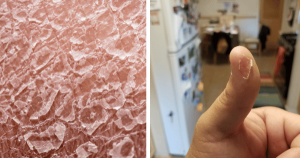Learn how skin signals can help with accurate disease diagnosis, prompt treatment, and better outcomes.
Beyond acne, serious illnesses may manifest as skin symptoms. Inattention to skin issues for aesthetic reasons can make things worse. Numerous skin indicators reveal serious illnesses that are underlying.
*Please keep in mind that our intention is NOT to provide medical advice. All of the content in our resources is only available for educational reasons. We admonish you to consult a healthcare professional immediately.
Dark areas

Unexpectedly developing black patches on your skin could be an indication of Addison’s disease (adrenal insufficiency). This isn’t always the case, though. Other symptoms include joint and muscle pain, loss of appetite, low blood pressure, and high blood sugar. Call your doctor as soon as you notice any of these symptoms.
Discoloration

Have you ever had skin lesions that were white? It might be vitiligo, a condition in which the melanocytes stop producing pigment. Consult an endocrinologist or dermatologist if you have this issue for a diagnosis and treatment.
Rashes

Rashes are frequently associated with underlying issues. A doctor should be seen for the treatment of severe and persistent rashes, regardless of whether they were triggered by food, medication, or communicable illnesses like chickenpox. Some conditions, such Stevens-Johnson syndrome or Lyell’s syndrome, can be lethal. Adults who develop chickenpox should seek medical attention right away.
Edoemas

If you frequently experience edoemas, you should visit an endocrinologist because this could indicate hypothyroidism. Dry skin, hair loss, weight gain, and other symptoms are all possible with this condition, which is characterised by insufficient hormone synthesis. If you experience any of these symptoms, please visit a doctor.
Moles Our bodies can develop new moles for a number of causes, including inheritance. While the majority of moles are harmless, it is crucial to get medical help if you notice rapid growth, pain, or obvious colour or size changes.
Acne

Acne is a common skin condition brought on by an overproduction of skin oil, hormonal imbalances, or intestinal issues. To properly combat it, adopt a good skincare routine and get specialised advice from a doctor.
Flaking

Numerous causes, such as vitamin deficiency, hormone imbalances, allergic reactions, and certain disorders, can cause flaking. When it is accompanied by significant symptoms, it may indicate the existence of a serious underlying illness.
excessive perspiration

Sweating excessively could be a sign of Graves’ disease, an autoimmune condition that affects the thyroid. Thicker skin and persistent itching may occur from this. If you have any of these symptoms, get help from a doctor immediately once.
Did you know that these deadly diseases can be detected by skin indicators? Please share your thoughts

